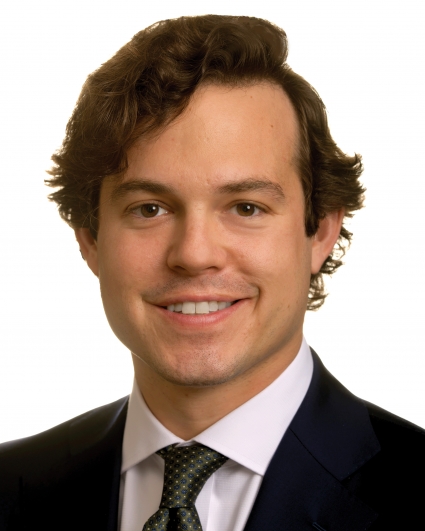Wyatt Larkin

Wyatt Larkin’s commitment to helping people through the civil justice system goes back to the mom-and-pop law firm he grew up in.
His father was a solo plaintiff’s trial attorney and his mother was his father’s paralegal. Their work on behalf of people whose rights had been violated ultimately inspired Larkin to become a trial attorney.
In his most recent case with Kline & Specter, Larkin was co-counsel in litigation that resulted in a $9 million settlement with a rideshare company and a hotel on allegations they enabled a man to rape a minor. The 11-year-old girl was said to have met the man on the Internet and he then arranged for the rideshare to bring her to his hotel. The rideshare company has since implemented stricter measures to make sure that drivers do not transport minors who are unaccompanied by adults. (Read article)
Larkin is currently heavily involved in several lawsuits against Panera for injuries caused by their Charged Lemonade energy drink. Those lawsuits have garnered widespread media coverage and led to Panera removing the drink from its menu.
A magna cum laude graduate of Harvard Law School, Larkin’s own path to the law began with public service. After earning his undergraduate degree with honors from the Johns Hopkins University, he began his career working on behalf of the constituents of his home district in Arizona as an aide to then-Rep. (now Sen.) Kyrsten Sinema. There, he worked his way up from intern to digital director. As one of the early digital professionals on Capitol Hill, Larkin developed a knack for using emerging online communications technologies to connect people with their representatives and make their work in Congress more accessible and transparent.
Larkin briefly left Capitol Hill to work with campaigns and non-profits as a web design and online fundraising consultant before making a return to Congress, this time on the Senate side as the digital director and speechwriter for Sen. Mark Warner of Virginia. Larkin prepared the senator’s speeches, managed staff writing teams for policy addresses and white papers, and drafted dozens of opinion pieces that appeared in publications including The Washington Post and USA Today. All the while, he continued to serve as Warner’s chief social media strategist, photographer, videographer, and graphic designer.
After a rewarding seven years in Washington, Larkin was ready to pursue a career in the law, which he still believed would provide the best opportunity to make an impact. He began law school at U.C. Berkeley, where he won the Prosser Prize in Written and Oral Advocacy and American Jurisprudence Awards in Property, as well as in Shanin Specter’s first-year Torts class. He spent his first summer as a research assistant for Professor Bertrall Ross with the Presidential Commission on Supreme Court Reform.
Larkin then transferred to Harvard Law School, graduating in the top 10 percent of his class and winning Dean’s Scholar Prizes in First Amendment, Digital Governance, Legal Profession, and Drug Product Liability Litigation.
Outside the classroom, he served as a technology editor on the Harvard Journal of Law & Technology, secretary of the Harvard Plaintiffs’ Law Association, and a member of HLS Lambda and the HLS American Constitution Society chapter.
As an advanced clinical student with the Harvard Cyberlaw Clinic at the Berkman Klein Center for Internet & Society, he worked on impact litigation projects for a major national news outlet and a leading civil rights organization and also contributed to an amicus brief submitted to the United States Court of Appeals for the D.C. Circuit by a leading LGBTQ rights organization.
Larkin worked as a law clerk at Kline & Specter before joining the firm.
